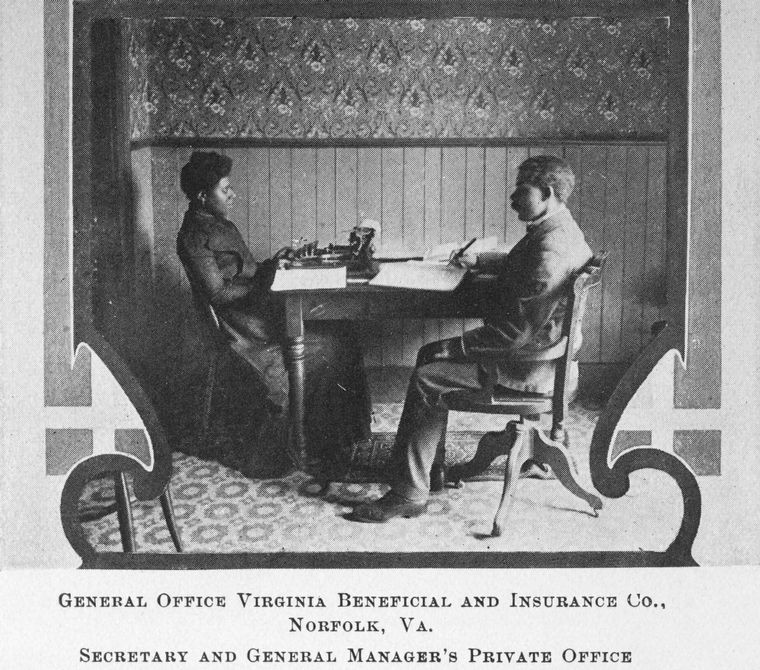Career Services
What is an Informational Interview?

Informational interviews are one of the best ways to network because they give you the opportunity to gather inside information that could increase your chances of getting a good job. Most of us associate informational interviews with meetings college students set-up with their wealthy uncles to find out more about what it's like to work in the family business. While informational interviews are a crucial step in the career exploration process and any career changer should conduct a few before committing to a new career path, they aren't just for exploration. For most job seekers, informational interviews are a tool you can use to get an edge on your competition when you change companies, departments, or industries.
How is this different from a regular interview?
- You run the meeting. In a job interview, the interviewer sets the agenda and runs the meeting. You are in charge of the informational interview. The person you meet with will expect you to have questions prepared and to provide a clear direction for the meeting.
- The meeting is not about your qualifications for a specific job opening and it is not appropriate for you to ask for a job at the meeting. You might be thinking, Won't they detect my ulterior motives? What ulterior motives? That you need a job? Odds are, they already know you're looking and they agreed to meet with you anyway. Just don't ask them for one. It's rude.
What should I ask?
- Formulate questions that will get the person talking about their experiences. For example, you might want to ask, how did you get started in xyz? or what is the best thing about working in this industry?
- Unlike job interviews, asking about salary ranges and fringe benefits that are standard for the industry might be appropriate. However, it's a good idea to get a sense of what the person you are talking to is like first, and to weigh the odds of you interviewing with them for a job in the near future. For example, if the person you meet with shows you the trundle bed he has set-up under his desk for the weekly all-nighters he pulls, you probably don't want to ask him about vacation and flex time. In any interview, you build chemistry by playing up what you have in common with the person you are meeting with, especially when it comes to work ethic. If you think pulling all-nighters every week is the sign of a sick mind, you might be right, but don't do anything that might let your future boss think that. As far as salary goes, never ask the person you meet with what he or she earns. Ask about what might be typical for someone in that industry at the level you would come in at. Better yet, do some research beforehand and ask for their thoughts on your findings. You can get salary information at salary.com or payscale.com.
- What are some additional resources you could recommend or additional people I should talk to? Always try to gather additional contacts through your informational interviews.
You survived the informational interview and you really do want to work at that company. What now?
Say something like, "Thank you so much for taking the time to meet with me. This seems like a wonderful place to work and I think I could picture myself as part of the team here. What are your suggestions for next steps?"
Want to read more about Informational Interviews before you jump in?
Roadtrip nation: find your path in life/ Marinner, Mike
I love this book and I hope that everyone else who experiences it will love it too. Mike Marinner and his fellow partners in crime at Roadtrip Nation share their notes on the informational interviews they conducted during their cross-country trip to figure out what they really wanted to do with their lives. Check-out the website for videos of the interviews. My favorites: Ben Zander/Tom First, Kevin Carrol
Shortcut your job search: the best way to get meetings/ Wendleton, Kate
All of Kate Wendleton's Five O'Clock Club books are terrific for anyone who wants comprehensive step-by-step directions on how to do everything job search related. Shortcut your job search walks you through everything you need to know to set up meetings and follow-up.
The Very quick job search/ Farr, Michael
I recommend this book to just about everyone who is feeling stuck in their job search. It's one of the few job search guides out there that has tips that still surprise me and includes a lot of helpful advice on how to plan your day when you're looking for work. Michael Farr also includes a helpful section on how to approach informational interviews and how to get the most out of them.
Read E-Books with SimplyE
 With your library card, it's easier than ever to choose from more than 300,000 e-books on SimplyE, The New York Public Library's free e-reader app. Gain access to digital resources for all ages, including e-books, audiobooks, databases, and more.
With your library card, it's easier than ever to choose from more than 300,000 e-books on SimplyE, The New York Public Library's free e-reader app. Gain access to digital resources for all ages, including e-books, audiobooks, databases, and more.
If you don’t have an NYPL library card, New York State residents can apply for a digital card online or through SimplyE (available on the App Store or Google Play).
Need more help? Read our guide to using SimplyE.